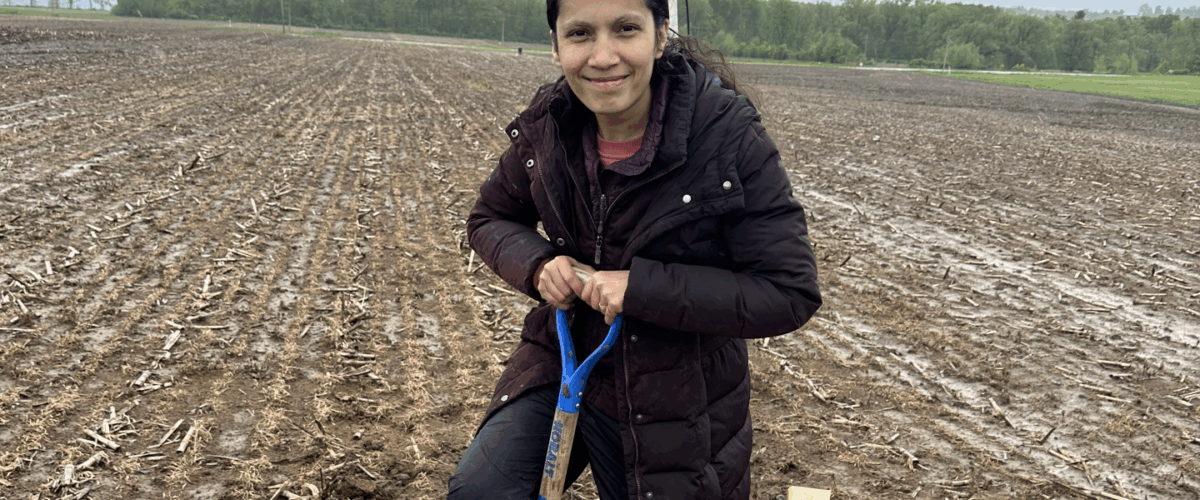I find the sustainability aspect of this project compelling. I like that we examine the soil’s overall performance, not only measuring soil health and greenhouse gas emissions but also comparing corn silage yields across the different soil health management systems. All of these factors are important to consider when it comes to successful and sustainable silage farming.
I also appreciate that this project takes a holistic approach to reaching the industry’s environmental stewardship goals. With locations in six different states throughout the United States, hopefully we will have comprehensive results that can help dairy farmers throughout the country.
Tell us about your professional background.
I earned my bachelor’s degree in agriculture from the Institute of Agriculture and Animal Science (IAAS) in Chitwan, Nepal in 2016. After that, I taught in a high school for a while and served as a livelihood officer for an Earthquake Resilience project.
In 2018, I moved to the U.S., and in 2019 I completed my master’s in plant science at South Dakota State University. My research there was focused on understanding how manure and chemical fertilizer application affects soil health. This furthered my interest in soil science and agronomy. Most recently, I completed my PhD at Purdue University in the Department of Agronomy.
The NMSP project you are part of focuses on corn silage. Is this an area you have worked in before?
Although my previous research was not on corn silage, I have worked with different soil management practices including no-till and reduced tillage systems, as well as cover cropping. I feel confident that my research experience in soil biogeochemistry, soil health and nutrient management in a variety of cropping systems could help me make a meaningful contribution to the project and the NMSP team.
Beyond that, I have some experience with on-farm research, so I’m familiar with the logistics behind working with farmers on their land, which is much different from working on experimental research farms.



